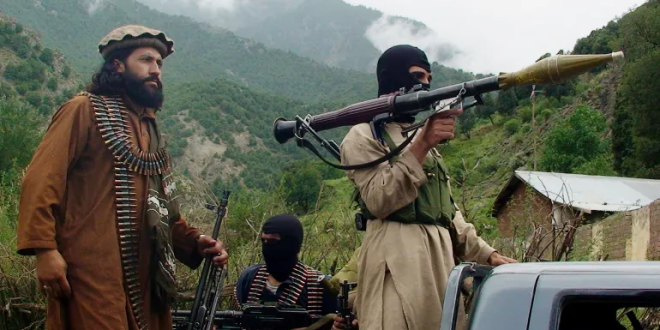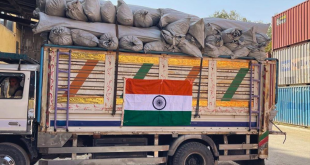KABUL – The outlawed armed group Tehrik-e-Taliban Pakistan (TTP) has escalated its campaign against the Pakistani military, issuing a direct warning to target security personnel and expand attacks to businesses operated by the military.
In a statement released on Sunday, the TTP named several enterprises it plans to attack, including the National Logistics Cell, Frontier Works Organisation, Fauji Fertiliser Company, military-run housing authorities, and a commercial bank. Civilians were urged to withdraw investments from these companies within three months, and employees were advised to seek alternative jobs.
The military has yet to respond to this threat, and efforts to obtain comments from Inter-Services Public Relations (ISPR), the military’s media wing, have been unsuccessful.
The warning follows intensified tensions between Pakistan and Afghanistan. Last month, the Pakistani military launched air raids targeting alleged TTP hideouts in Afghanistan. Pakistan accuses the Afghan Taliban of harboring TTP fighters, a charge the Afghan government denies.
Founded in 2007, the TTP has waged a violent insurgency against the Pakistani state, demanding the imposition of strict Islamic law, the release of its members, and the reversal of the merger of Pakistan’s tribal areas with Khyber Pakhtunkhwa.
Since the Taliban’s takeover in Kabul in 2021, TTP attacks in Pakistan have surged. In 2023, nearly 1,000 people, including many security personnel, were killed in violence attributed to the group. The death toll climbed further in 2024, with 2,526 fatalities recorded, marking the deadliest year in nearly a decade, according to the Islamabad-based Center for Research and Security Studies (CRSS).
Imtiaz Gul, CRSS executive director, emphasized the gravity of the TTP’s latest threat. “Their goal is to weaken the military, which they see as their primary obstacle,” Gul said.
Security expert Abdul Sayed described the TTP’s warning as a strategic shift under its leader, Mufti Noor Wali Mehsud. While the group had previously focused its attacks on security forces, recent military operations, including air strikes in Afghanistan’s Bermal district, have reportedly emboldened internal hardliners to broaden their targets.
The TTP also appears to be leveraging Pakistan’s political turmoil. Analysts note the group may be capitalizing on ongoing public criticism of the military, including social media campaigns linked to supporters of the opposition Pakistan Tehreek-e-Insaf (PTI) party, urging boycotts of military-affiliated businesses.
This development raises concerns over the growing nexus between political divisions and militant strategies, as the TTP continues to exploit the widening rift between Pakistan’s security establishment and segments of its civilian population.
 Afghanistan Times Latest News and Analysis from Afghanistan and the Region
Afghanistan Times Latest News and Analysis from Afghanistan and the Region



